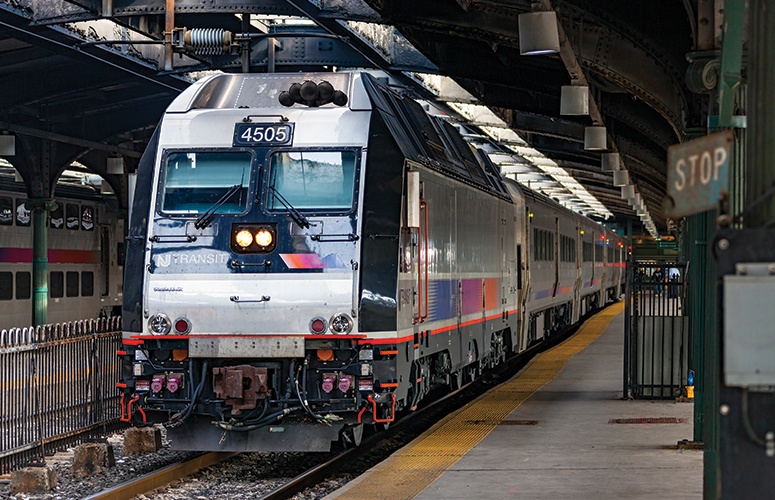NJ TRANSIT has officially broken ground on the County Yard and Delco Lead Storage and Inspection Facility Project, a key initiative within its Resilience Program. This project will establish a secure storage site for railcars and locomotives, safeguarding them against future flooding and extreme weather events. Strategically located along the Northeast Corridor in New Brunswick, the Delco Lead facility will provide a centrally positioned, resilient storage area while also featuring a new service and inspection facility to expedite the return of equipment to service after severe weather.
“The County Yard/Delco Lead Storage and Facility Project is a vital investment in the efficiency and reliability of NJ TRANSIT operations along the Northeast Corridor,” said Senator Cory Booker. “I’m proud to have helped secure $180 million in federal funding to enhance regional infrastructure and improve the experience of New Jersey’s hundreds of thousands of daily public transit commuters.”
“This project is an essential step in ensuring New Jersey’s transit infrastructure is prepared to withstand extreme weather challenges,” said Congressman Frank Pallone (NJ-06). “By developing the Delco Lead Storage and Inspection Facility, we are reinforcing the resilience of our rail system and protecting public transit investments.”
Michael Culotta, regional administrator of the Federal Transit Administration, emphasized the federal commitment to the initiative: “The FTA is investing $184.5 million into this project to strengthen transit operations, enhance system resilience, and keep New Jersey’s transportation network moving forward.”
NJ TRANSIT Board Chair and DOT Commissioner Fran O’Connor highlighted the agency’s proactive approach: “The Delco Lead Project ensures that our railcars are protected against severe weather and allows for faster service restoration. This initiative is a testament to NJ TRANSIT’s commitment to maintaining a robust and resilient transit system.”
NJ TRANSIT President & CEO Kevin S. Corbett echoed these sentiments: “This groundbreaking represents a major milestone in our mission to enhance system resilience and reliability. Investing in resilient infrastructure not only protects critical assets but also ensures uninterrupted service for our customers when they need it most.”
Patrick Diegnan, NJ Senator and Chair of the Senate Transportation Committee, emphasized the long-term benefits: “As we modernize our railroad, protecting assets from extreme weather is critical. This project will help secure the reliability of our transit system for years to come.”
Project Details
In September 2024, George Harms Construction Company, Inc., of Howell, NJ, was awarded a $497.9 million contract—plus 10% for contingencies—to reconstruct four miles of existing Delco Lead track and build an additional mile-long track from County Yard to North Brunswick.
Due to its elevated location above the floodplain, County Yard and Delco Lead will serve as a secure refuge for railcars during extreme weather, ensuring continued operations when other facilities, such as the Meadows Maintenance Complex in Kearny, NJ, and the Morrisville, PA yard, need to be evacuated.
The project also includes the construction of a 1,250-foot-long Service and Inspection Facility, which will accommodate:
- Two 12-car inspection tracks
- Five 12-car storage tracks
- A crew quarters and employee parking lot
- Space for light maintenance and spare parts storage
This facility will allow NJ TRANSIT to quickly inspect rail equipment and return it to service following extreme weather events.
A Post-Sandy Solution
Following the devastation of Superstorm Sandy, County Yard and the Delco Lead were identified as critical safe-haven storage sites for NJ TRANSIT rail equipment. Their location above the floodplain, with minimal surrounding trees, makes them ideal for protecting assets during storms.
With this new infrastructure in place, NJ TRANSIT is taking a major step forward in strengthening its transit system’s resilience and ensuring uninterrupted service for New Jersey’s commuters.


